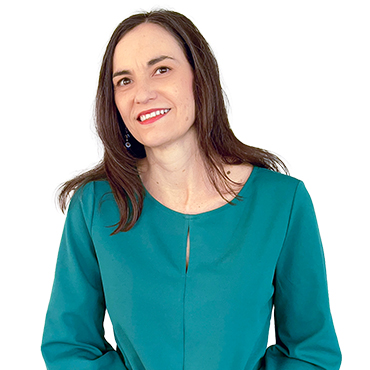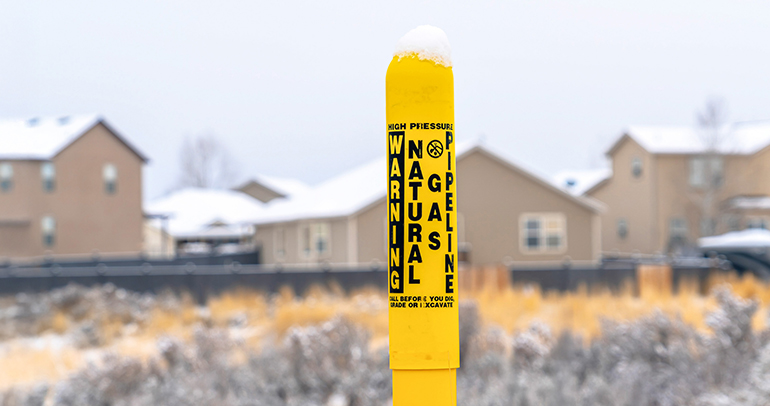
Two years ago, utility companies had a lot to celebrate on Earth Day, as the industry’s Environmental Dedication Index score was still at peak levels, according to our Cogent Syndicated Utility Trusted Brand & Customer Engagement: Residential™ study. This year, however, is a different story.
Our Environmental Dedication Index comprises customer ratings of utility actions to build strong environmental stewardship. Since the first quarter of 2022, the index has dropped by 30 points to 656 (on a 1,000-point scale), hitting the lowest score we’ve seen since launching the study in 2014. To understand why, we need to go back a couple more years.
The Rapidly Evolving Customer Perceptions of Utilities’ Dedication to the Environment
Environmental Dedication scores for residential customers peaked at the end of 2020, but a lot of scores peaked in late 2020, thanks to effective utility responses to challenges posed by the COVID-19 pandemic and economy. Since then, the industry has seen declining performance across key study factors as customers continue to face higher prices across household spending categories, including utilities.
Within the residential Cogent Syndicated study, Environmental Dedication has always been one of the smallest components of Brand Trust. When we updated the Engaged Customer Relationship (ECR) model for 2024, we found that Environmental Dedication had become even less important in influencing Brand Trust. While there’s still a basic customer expectation of utilities being environmental stewards, it’s no longer a true differentiator among utilities.
In other words, of course customers expect their utility to pursue environmentally friendly goals—just like utilities should ensure that the power stays on and the billing and payment process is streamlined.
But talk to enough utility companies in different parts of the country and you’ll realize that environmental stewardship is not a one-size-fits-all proposition. The continual decline of the Environmental Dedication Index indicates that customers are increasingly skeptical about their utility providers’ dedication to environmentally friendly practices, including the promotion of green energy solutions for both buildings and vehicles.
Communicating About Utility Providers’ Environmental Endeavors
All too often, companies don’t know what to say about their environmental endeavors, when to say it, or whom to say it to.
Will talking about renewables stir up the faction that insists green energy makes the grid less reliable, and if so, does that counterbalance the goodwill that green energy evokes among passive sustainability supporters?
If a utility talks about its tools and programs to help customers save energy, are customers going to complain that they shouldn’t have to use such offerings for a lower bill, or will most customers perceive such programs as a customer benefit, even if they don’t take advantage of those offerings themselves?
The answer, unfortunately, is it depends.
Environmental stewardship is most important to customers in the West and least important to customers in the East. Western utilities also see the highest Environmental Dedication scores, while Eastern utilities see the lowest.
In drilling down into the causes that customers most want to see their utilities support, the West again sees the highest support for a clean environment and producing green and/or renewable energy, while the South sees the lowest support for both.
How to Understand and Meet Customer Expectations of Utilities’ Environmental Dedication
Utilities that evaluate their customer bases, identify customer personas, and customize messaging will see better perceptions of environmental support.
For example, industrywide, there is little difference among age groups in the desire for utilities to support a clean environment. Yes, customers 65 and older show the lowest interest, but we’re talking only two percentage points lower than customers 35 and younger. The oldest customers show the highest interest in utility support for producing green energy, a full five percentage points higher than the youngest customers.
In other words, the assumption that your oldest customers are cranky senior citizens who can’t stand the thought of renewables or conserving energy no longer applies. Likewise, the idea that customers 35 and younger are the staunchest environmentalists in your customer base may be only partially accurate.
Some utilities are performing significantly better in the Environmental Dedication Index, demonstrating a remarkable commitment to environmental responsibility. A great deal of that enhanced performance is due to targeted and memorable communication efforts.
For example, two of the highest-scoring Western electric utilities, Salt River Project and SMUD, show higher customer recall of messages around ways to lower energy consumption and renewable energy than the industry average. Both are also outperforming their peers in meeting customer communication channel preferences and being seen as a credible source of information, which is no mean feat these days.
We’ve designed the Utility Trusted Brand & Customer Engagement: Residential study to be a dynamic deliverable that allows utility subscribers to analyze their own customer data, sorting by age group and other demographics if desired, to identify high-level environmental perceptions, convictions and goals in addition to communication preferences and recall trends. Other utilities combine Cogent Syndicated findings with custom research to develop campaigns and conduct message-testing.
At a time when sustainability initiatives demand not only implementation but also robust customer engagement, effective communication becomes paramount. Our energy experts are hosting a workshop to prepare energy companies to effectively communicate their sustainability programs with customers at this year’s CHARGE – Powering Energy Brands conference on May 16, 2024 in Houston. Attendees will walk away with communication messages they can implement that will best resonate with their customers to grow uptake of energy companies’ sustainability programs. In June, we’ll be publishing a blog around the main takeaways from this workshop, so stay tuned.
For more information on the Environmental Dedication Index, other ways your utility can leverage our Cogent Syndicated studies, or how we can help you effectively communicate about your environmental endeavors, reach out to talk with one of our Energy experts.
Want to learn more? Let’s connect.
About the Utility Trusted Brand & Customer Engagement™: Residential Study
Escalent conducted surveys among 62,898 residential electric, natural gas and combination utility customers of the 141 largest US utility companies (based on residential customer counts). The sample design uses a combination of quotas and weighting based on US census data to ensure a demographically balanced sample of each evaluated utility’s customers based on age, gender, income, race and ethnicity. Utilities within the same region and of the same type (e.g., electric-only providers) are given equal weight to balance the influence of each utility’s customers on survey results. Escalent will supply the exact wording of any survey question upon request.
For more information on the full report, click here.








